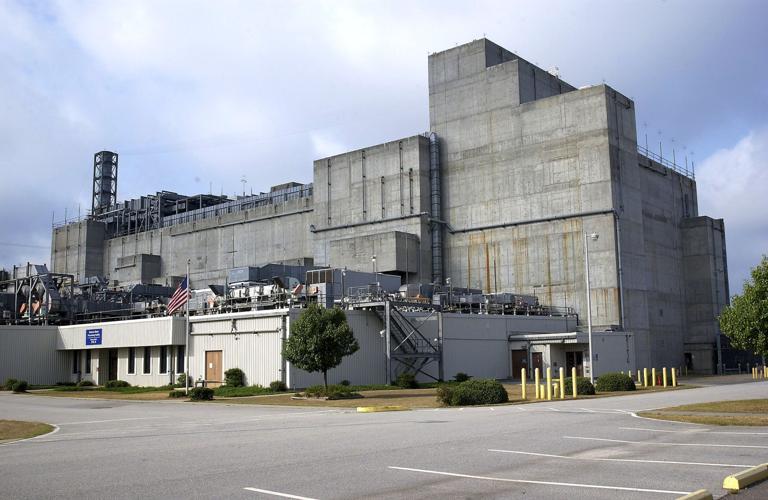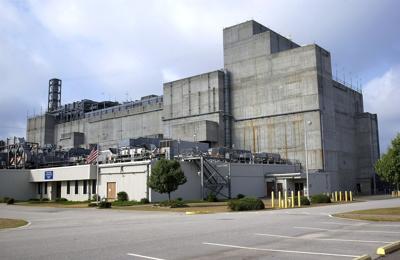The U.S. Department of Energy intends to send a few gallons of radioactive wastewater at the Savannah River Site to a facility in Texas for treatment and disposal, a spearhead of sorts made possible by the department's recent decision that the waste is markedly less dangerous than previously characterized.
The momentous move, a senior Energy Department official suggested, will in the long run expedite cleanup of the Savannah River Site – the sprawling complex south of Aiken – and begin to ease a nationwide logjam at sites where nuclear waste has been trapped for years.
Billions of dollars could be saved long-term, too.
"We're pretty excited about this, because treating a waste stream as high-level waste, it's a very expensive process," the senior official told the Aiken Standard on Thursday. "Obviously, with high-level waste, there's a lot of processes and procedures for protecting the workers and the public, but are not necessary if it's not really high-level waste."
At least a year before the wastewater decision was made, the Energy Department revised its interpretation of the term high-level radioactive waste: toxic material considered too dangerous to be kept anywhere but deep underground. For years, the department defined waste by its source, its provenance. Radioactivity – what's in it, as Under Secretary for Science Paul Dabbar has couched it – is now chief among the considerations.
Such a ruling brought the U.S. into alignment with international practice.
The Savannah River National Laboratory, among others, backed the reinterpretation, according to a letter previously reviewed by the Aiken Standard.
"The national laboratories are supportive of a revised interpretation for high-level radioactive waste and willing to provide any resources to ensure successful implementation of the final policy," reads the letter, which was signed by Vahid Majidi, the director of SRNL.
Critics, though, have decried the repositioning as a means to potentially cut corners, something that would endanger Americans. Waste is waste, some have argued, and nuclear refuse demands a dedicated, protected grave.
The Savannah River Site wastewater to be sent cross-country to Waste Control Specialists in western Texas is the byproduct of normal operations at the Defense Waste Processing Facility, a behemoth plant that encases nuclear sludge in glass logs, making it much safer to handle and store.
The wastewater was the first high-level waste the Energy Department debated treating like low-level waste – the verdict ultimately reached. The process and plans were discussed at a public meeting in Augusta, in mid-December 2019, and public input has been sought along the way.
Though environmental reviews considered the disposal of 10,000 gallons of grouted wastewater at a commercial facility outside South Carolina, the pilot program unveiled this week involves only single-digit volume. It is, the senior Energy Department official said, a start.
Approximately 8 gallons of the radioactive wastewater, stored in a decades-old underground tank at the Savannah River Site, will be collected over the course of about two weeks. It will be shipped to the Lone Star State in two or three batches. (A destination in Utah was reviewed, too.)

Two people review a Defense Waste Processing Facility wastewater poster at a public meeting in Augusta, Georgia, last year.
The retrieval, movement, treatment and disposal of the waste pose minimal risks to human and environmental health, government documents state.
"The public should not be worried at all. This is, relatively speaking, the kind of waste which is transported and treated, I would say, almost on a daily basis," the senior official said of the Savannah River Site wastewater. "It's very safe to transport, and it really is not a problem to the public at all."
The U.S. Department of Transportation stringently regulates the shipment of waste and other nuclear materials; the Nuclear Regulatory Commission is a major player, as well. Accidents are rare. From 2001 to 2010, the federal transportation authority logged fewer than 100 transportation-related radioactive waste incidents.
None resulted in radiation exposure, an Energy Department study noted.






